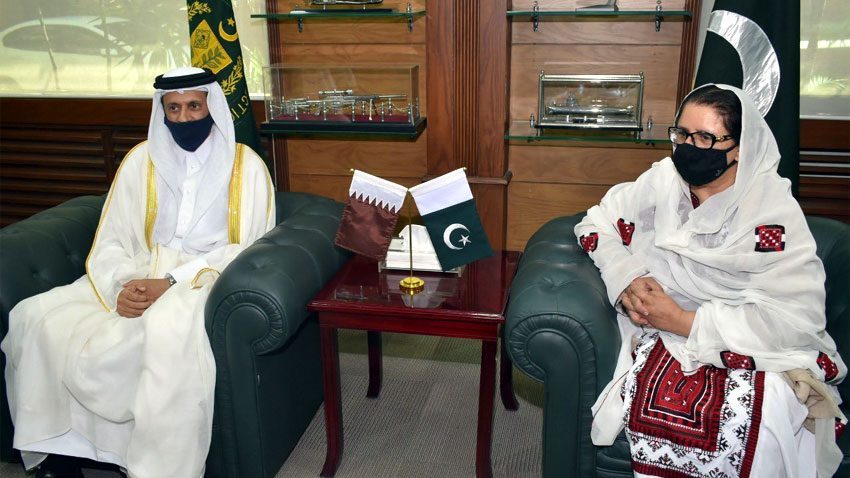The two countries focus on improving bilateral relations
Pakistan’s military institutions are open for Qatari Armed Forces for training, the Asian country’s Minister of Defence Production Zobaida Jalal said, the state-run Radio Pakistan reported on Wednesday.
The Pakistani official, in a meeting with the Ambassador of Qatar to Pakistan Sheikh Soud bin Abdulrahman Al Thani in Islamabad, emphasised the need for further bilateral cooperation beyond trade, including defence, military exercises, training of personnel and other joint ventures.
“We have a remarkable history of good and brotherly relations with Qatar and Pakistan would like to continue with the same pace and momentum,” said Jalal.
Qatar’s ambassador to Pakistan also committed to the improvement of bilateral ties between the two countries.
Earlier in January 2021, Pakistan’s Army chief General Qamar Javed Bajwa also met with the top Qatari leadership, including Amir Sheikh Tamim Bin Hamad Al-Thani.
The two countries also signed several memoranda across different sectors in recent years, including tourism, business and defence, with Pakistan offering to provide Qatar with security for the FIFA World Cup 2022.
Read also: Qatar-Pakistan LNG deal signals possible shift in regional politics
Qatar and Pakistan share a decade-long defence cooperation deal that was signed in 1983, enabling joint training and exercises between the two countries, with many Pakistani nationals serving in the Gulf state’s Armed Forces.
Analysts believe that the latest growth of ties between the two states is “another indication of the emergence of a new kind of camaraderie” as Pakistan begins to shift away from its reliance on Saudi Arabia and the UAE.
Speaking to Doha News, Associate Professor of Political Science at Qatar University Dr. Farhan Chak said this is also suggests the formation of a new bloc between Pakistan and countries that hold similar policies.
“The relations between Turkey and Qatar are strong, as are relations between Turkey and Pakistan. It was only really a matter of time that these three got closer together, said Dr. Chak.







